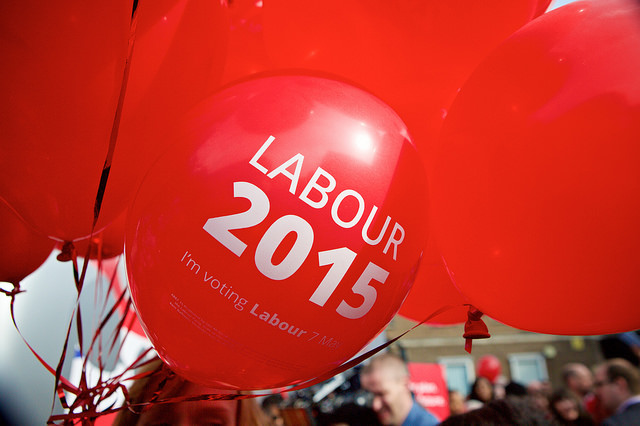The UK Census is a well-established national data gathering tool, which is then used for many different analyses, but there are some gaps in what it covers. Consultation is underway on the Census 2021. The closing date for responses to the Census Consultation is Thursday 27 August.
2021 Census director, Ian Cope, says: “Information based on census data is heavily used to improve decision-making by local and central government, the health and education sectors, businesses, and by community and voluntary bodies. Of course society changes in the 10 years between each census, so we’re asking you to tell us what information you will need in 2021.”
Newcastle University statistician, Tom King, explains the importance of the Census and why having your say in the topics which it surveys is vital to understanding who and what matters in society.
Census 2021: Consultation
Census has a particular importance in the public engagement with our society and how it is structured. It goes to very single household, and seeks to classify aspects of our society into groups. In this way, it can shape our understanding of our own society, and what is important to our society. In many ways it is the basis for societal planning for a whole decade, as it is the only source of detailed information.
For many groups, getting a question in the census to recognise their status is of profound importance. While what is measured gets done, when something is not measured it may not be known to exist at all. Census figures form the basis of all government activity, so any further information has to come from other sources, which only more specialised groups will access. This means the consultation for census topics is always hotly contested, and many more topics are proposed than can be surveyed.
Timeline for Consultation
It may seem strange that the census is running its consultation for topics to be surveyed in 2021 six years ahead of time. But this is because it is such a huge project, often being compared to a military campaign in its scale. It also follows a rigorous testing process, so that as well as typical questionnaire development, there is also a full scale census test run two years in advance to evaluate operational processes and new questions.
Census is different to other surveys in the UK, with a statutory requirement for householders to make a census return or face a fine. The questionnaire itself is approved by parliament, another stage in the long development process.
This is not necessarily a rubber stamp, with the question on religion being introduced by parliament at this stage.
This question is framed as optional, not a caveat the statisticians were allowed, but one which was repeated in 2011.
Background to the Census
When national censuses was originally conducted, typically beginning in the 19th century, they were the only systematic source of information on a country’s population. They relied on enumerators visiting every household on census day to record their details and this process continued into the 20th century due to popular illiteracy. Census has changed, with self-completion forms and by introducing usual or ‘de jure’ residence to replace the original ‘de facto’ qualification which caused many strange anomalies.
The statistical approach has also changed and the census sits within a portfolio of detailed surveys collected by the National Statistics Office. This reflects a need for more detailed information on some issues, such as crime, and the introduction of statistical sampling of households which required a register of addresses. There are also follow up surveys to test the coverage and accuracy of the data, trying to identify who may have been missed or misclassified.
Who is included in the Census?
It is confusing to many people to describe the problem of people being missing from the census. Certainly as the number missing (around 6%) is nowhere near the number of people fined. But at 94% census has a higher response rate than any other survey, and it is the only survey to capture some population groups, such as those living in large and secure communal establishments, and the homeless. Although the overall total is totemic, it is the local geographical detail which is important.
No other source of information tells us exactly how many people live in small areas with enough detail about them e.g. their age and sex, for this to be useful for demographic models. This is why the plans to shift to administrative data on which to base census enumeration are still in development. You may believe that the government knows everything about you but the fact is they don’t, and what they do know they don’t share, even for statistical purposes.
It is often pointed out that other countries have moved to an administrative system, but their data rely on population registers, and often unique ‘social security’ or similar numbers. Britain has none of these, and in fact the census goes out without assuming anything, admitting those who are irregular, or people who would prefer not to be the part of any system at all. More than that, we collect other information on the characteristics of our population, in a detail other countries envy.
These are the topics which are so hotly contested by societal groups, while the statisticians worry themselves much more about the missing people.
Government departments, and more local relations, are the source of many questions on economic activity and education, as well as the myriad questions on ethnicity. But it is the local people who see the consequences of what it is chosen to measure and how they are to be classified, and census can only take place by popular consent, as in the community exception to the human rights act.
At present, the framing of question about activity covers attending education, working and acting as a carer for someone. This excludes a large swathe of human activity, and discounts the activity of anyone who is retired, by recording no information on any voluntary role they may have. In the particular case of transport, this means that our only detailed transport data is around commuting patterns, because it is only main mode of travel to work which is queried.
Travel and Transport: An Example
Travel planning is aimed particularly at the stress on the transport network seen in the morning rush hour, when it is closest to capacity. But anyone who actually travels to work will have noticed the difference during school holidays which cannot entirely be due to commuters being away on holiday. Similarly, university towns will notice a difference in traffic patterns during the vacations, but this portion of commuting is not collected in the census, despite its obviously localised nature.
At the heart of the transport question is one of the main reasons for having a census which has yet to be addressed.
By linking two addresses, whether as main and second homes, or within country migration, or travel to work, we see data about the flow of people around our country. A survey cannot possibly achieve this due to the small numbers seen (hence the highly uncertain figures about migration) yet this tells us a lot about our society and how we are changing.
There are many specific topics close to many hearts for which the census is not the right source. But the census does form a direct intrusion of how our society is classified on each of us, which we should be in control of. By introducing doubt into the minds of victims of sexual assault, police were able to reduce the number of people who believed there had been a crime. Similarly, by not seeing something which is an important feature of our lives in the census questionnaire can diminish our confidence in its importance.
An example from my own experience, is the use of the travel to work data in public consultations on transport plans in Newcastle. It is widely reported that only 1.7% of people cycle in Newcastle as a reason not to accommodate cyclists in redevelopments and reallocation of the road space. But this figure is from the census and includes only those commuting by bicycle as the longest part of their journey to work: the framing is that those are the only people who matter.
Students, at school, college or university are not counted, neither are those who travel by bicycle only part of the way and it also does not consider anyone who was unemployed at that time. This is strange if there is a local school in the area where development is proposed, but is particularly flawed in the context of the money being spent. The Cycle City Ambition Fund required bids from local authorities, and all the awards were made to university towns, but there is no data on how students travel to university.
Conclusion
Not everyone is comfortable reasoning with statistics, and the census is compelling in that way as it can be viewed as a true figure rather than an estimate. Students who might like to dispute the prevalence of cycling and advocate for students for equal consideration might turn to look for data to support them, but there isn’t any.
Embracing the use of simple evidence from the census into discussions in public consultation requires the data collected to reflect our society, or those not measured will not count.
——————————————————————————————————-
Author: Tom King, is a statistician in the School of Education, Communication and Language Sciences, Newcastle University. His research interests are public statistics and inference from longitudinal social data. Thus this incorporates communicating the relevance of social measurement, typically from large datasets. He is a fellow of the Royal Statistical Society.
If you would like to contribute to a response to the Consultation from Institute for Social Renewal, please contact Fiona.Simmons@ncl.ac.uk





